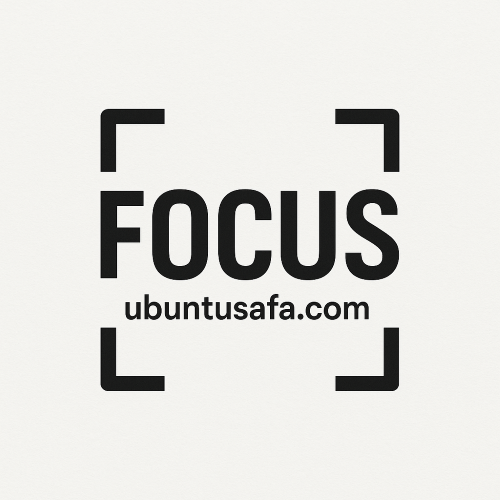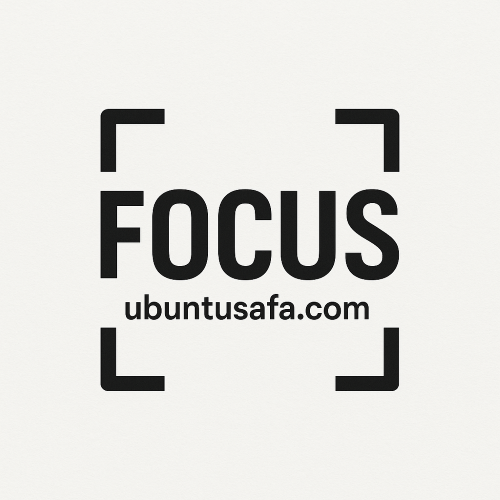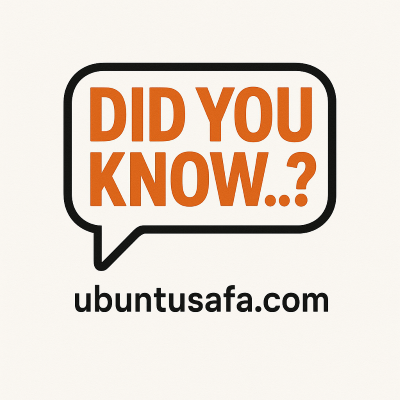What is the significance of the "geopolitical chessboard" in the Balkans, and how are external powers like Russia, China, and Turkey influencing the region's stability?
The Balkans are significant as a "geopolitical chessboard" because of their strategic location at the crossroads of Europe, the Middle East, and Asia.
This region, historically known as a "powder keg," serves as a crucial transit corridor for energy pipelines, trade routes, and military operations.
Its instability and slow progress toward full integration with Western institutions like the European Union (EU) and NATO have created a vacuum that external powers are actively trying to fill to expand their own influence and counter Western interests.
Influence of External Powers-
External powers like Russia, China, and Turkey are leveraging a mix of economic, political, and cultural tools to project influence and shape the region's stability.
Russia-
Russia's influence in the Balkans is primarily based on historical and cultural ties, particularly with Slavic and Orthodox Christian populations in countries like Serbia, Bosnia and Herzegovina, and Montenegro.
Political and Diplomatic Support: Russia uses its position on the UN Security Council to support Serbia's stance on Kosovo's independence, a key issue that prevents regional stability. It also actively supports pro-Russian political factions and leaders, particularly in the Republika Srpska entity of Bosnia and Herzegovina, to undermine Western-backed initiatives.
Energy Leverage: Russia has used its control over energy supplies, especially natural gas, to gain political leverage in the region, although its economic influence has been declining in recent years.
Disinformation Campaigns: Russian state-affiliated media outlets, like Sputnik, operate in the region to spread pro-Russian narratives, promote Euroscepticism, and exploit existing ethnic and political divisions.
China-
China's influence is largely economic, focused on its Belt and Road Initiative (BRI). Beijing's strategy is to establish a foothold in Europe through large-scale infrastructure projects.
Infrastructure Investment: China has invested heavily in the region, funding major projects like highways and railways. These projects, such as the Bar-Boljare highway in Montenegro, are often financed through loans from Chinese state banks, raising concerns about debt trap diplomacy and long-term economic dependence.
Access to Europe: By developing ports and railways in the Balkans, China aims to create a logistical gateway for its goods to enter the European market, bypassing traditional EU routes.
Political Influence: China's investment comes with minimal political conditions regarding democracy or human rights, which is appealing to some governments in the region that are frustrated with the EU's strict accession requirements.
Turkey-
Turkey's engagement in the Balkans is driven by historical ties, cultural affinity, and economic ambitions. It aims to be a stabilizing force and a key partner in the region.
Cultural and Religious Ties: Turkey's influence is strongest among the region's Muslim communities, particularly in Bosnia and Herzegovina, Albania, and Kosovo, due to its shared Ottoman past. This allows Turkey to build strong cultural and religious ties.
Economic Diplomacy: Turkey has free trade agreements with many Balkan states and invests in major infrastructure projects, like the Belgrade-Sarajevo motorway. It also provides military support and training.
Geopolitical Balancing Act: Turkey's policy is often a balancing act, seeking good relations with all regional actors. While it is a NATO member and supports EU and NATO accession for Balkan countries, it also pursues its own interests, which can sometimes diverge from those of its Western allies.
The Balkans are significant as a "geopolitical chessboard" because of their strategic location at the crossroads of Europe, the Middle East, and Asia.
This region, historically known as a "powder keg," serves as a crucial transit corridor for energy pipelines, trade routes, and military operations.
Its instability and slow progress toward full integration with Western institutions like the European Union (EU) and NATO have created a vacuum that external powers are actively trying to fill to expand their own influence and counter Western interests.
Influence of External Powers-
External powers like Russia, China, and Turkey are leveraging a mix of economic, political, and cultural tools to project influence and shape the region's stability.
Russia-
Russia's influence in the Balkans is primarily based on historical and cultural ties, particularly with Slavic and Orthodox Christian populations in countries like Serbia, Bosnia and Herzegovina, and Montenegro.
Political and Diplomatic Support: Russia uses its position on the UN Security Council to support Serbia's stance on Kosovo's independence, a key issue that prevents regional stability. It also actively supports pro-Russian political factions and leaders, particularly in the Republika Srpska entity of Bosnia and Herzegovina, to undermine Western-backed initiatives.
Energy Leverage: Russia has used its control over energy supplies, especially natural gas, to gain political leverage in the region, although its economic influence has been declining in recent years.
Disinformation Campaigns: Russian state-affiliated media outlets, like Sputnik, operate in the region to spread pro-Russian narratives, promote Euroscepticism, and exploit existing ethnic and political divisions.
China-
China's influence is largely economic, focused on its Belt and Road Initiative (BRI). Beijing's strategy is to establish a foothold in Europe through large-scale infrastructure projects.
Infrastructure Investment: China has invested heavily in the region, funding major projects like highways and railways. These projects, such as the Bar-Boljare highway in Montenegro, are often financed through loans from Chinese state banks, raising concerns about debt trap diplomacy and long-term economic dependence.
Access to Europe: By developing ports and railways in the Balkans, China aims to create a logistical gateway for its goods to enter the European market, bypassing traditional EU routes.
Political Influence: China's investment comes with minimal political conditions regarding democracy or human rights, which is appealing to some governments in the region that are frustrated with the EU's strict accession requirements.
Turkey-
Turkey's engagement in the Balkans is driven by historical ties, cultural affinity, and economic ambitions. It aims to be a stabilizing force and a key partner in the region.
Cultural and Religious Ties: Turkey's influence is strongest among the region's Muslim communities, particularly in Bosnia and Herzegovina, Albania, and Kosovo, due to its shared Ottoman past. This allows Turkey to build strong cultural and religious ties.
Economic Diplomacy: Turkey has free trade agreements with many Balkan states and invests in major infrastructure projects, like the Belgrade-Sarajevo motorway. It also provides military support and training.
Geopolitical Balancing Act: Turkey's policy is often a balancing act, seeking good relations with all regional actors. While it is a NATO member and supports EU and NATO accession for Balkan countries, it also pursues its own interests, which can sometimes diverge from those of its Western allies.
What is the significance of the "geopolitical chessboard" in the Balkans, and how are external powers like Russia, China, and Turkey influencing the region's stability?
The Balkans are significant as a "geopolitical chessboard" because of their strategic location at the crossroads of Europe, the Middle East, and Asia.
This region, historically known as a "powder keg," serves as a crucial transit corridor for energy pipelines, trade routes, and military operations.
Its instability and slow progress toward full integration with Western institutions like the European Union (EU) and NATO have created a vacuum that external powers are actively trying to fill to expand their own influence and counter Western interests.
Influence of External Powers-
External powers like Russia, China, and Turkey are leveraging a mix of economic, political, and cultural tools to project influence and shape the region's stability.
Russia-
Russia's influence in the Balkans is primarily based on historical and cultural ties, particularly with Slavic and Orthodox Christian populations in countries like Serbia, Bosnia and Herzegovina, and Montenegro.
Political and Diplomatic Support: Russia uses its position on the UN Security Council to support Serbia's stance on Kosovo's independence, a key issue that prevents regional stability. It also actively supports pro-Russian political factions and leaders, particularly in the Republika Srpska entity of Bosnia and Herzegovina, to undermine Western-backed initiatives.
Energy Leverage: Russia has used its control over energy supplies, especially natural gas, to gain political leverage in the region, although its economic influence has been declining in recent years.
Disinformation Campaigns: Russian state-affiliated media outlets, like Sputnik, operate in the region to spread pro-Russian narratives, promote Euroscepticism, and exploit existing ethnic and political divisions.
China-
China's influence is largely economic, focused on its Belt and Road Initiative (BRI). Beijing's strategy is to establish a foothold in Europe through large-scale infrastructure projects.
Infrastructure Investment: China has invested heavily in the region, funding major projects like highways and railways. These projects, such as the Bar-Boljare highway in Montenegro, are often financed through loans from Chinese state banks, raising concerns about debt trap diplomacy and long-term economic dependence.
Access to Europe: By developing ports and railways in the Balkans, China aims to create a logistical gateway for its goods to enter the European market, bypassing traditional EU routes.
Political Influence: China's investment comes with minimal political conditions regarding democracy or human rights, which is appealing to some governments in the region that are frustrated with the EU's strict accession requirements.
Turkey-
Turkey's engagement in the Balkans is driven by historical ties, cultural affinity, and economic ambitions. It aims to be a stabilizing force and a key partner in the region.
Cultural and Religious Ties: Turkey's influence is strongest among the region's Muslim communities, particularly in Bosnia and Herzegovina, Albania, and Kosovo, due to its shared Ottoman past. This allows Turkey to build strong cultural and religious ties.
Economic Diplomacy: Turkey has free trade agreements with many Balkan states and invests in major infrastructure projects, like the Belgrade-Sarajevo motorway. It also provides military support and training.
Geopolitical Balancing Act: Turkey's policy is often a balancing act, seeking good relations with all regional actors. While it is a NATO member and supports EU and NATO accession for Balkan countries, it also pursues its own interests, which can sometimes diverge from those of its Western allies.
0 Comments
0 Shares
4K Views
0 Reviews









